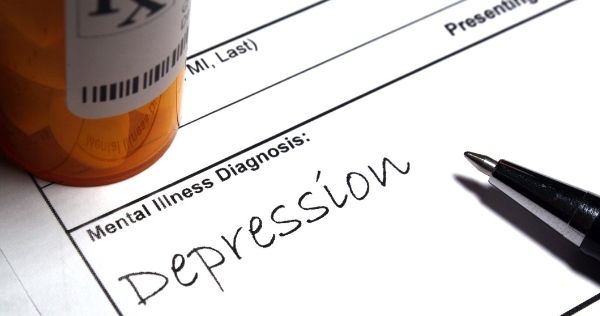 We, nurses, are always under extreme pressure and faced with problems from our clients, coworkers, and managers; these variables can lead to depression for nurses – and what’s worry-some is that most of us are taking it for granted.
We, nurses, are always under extreme pressure and faced with problems from our clients, coworkers, and managers; these variables can lead to depression for nurses – and what’s worry-some is that most of us are taking it for granted.
We are always expected to be at our top-notch level when we are at work, and this is no stranger for every nurse. With this amount of sustained pressure and the feeling of always under the microscope can sometimes affect us psychologically without us knowing. This is where anxiety and depression start to creep in when we suppress these emotions and endure for our patients’ sake. This is the battle of each nurse against anxiety and depression.
Depression is a term that was first coined in the 19th century, but depression as a disorder dates back from the times of Hippocrates. This was known before as melancholia. For the eyes of the many, depression is something that is caused by the weakness of a person or the inability to overcome loneliness.
For others, depression is a chemical imbalance in the brain. But in the eyes of the beholder, what is depression? The people who suffer from this type of disorder perhaps sometimes think about how one can understand depression if one doesn’t have any slight hint of an idea on what it feels to be depressed? These are just a few of the variables about this disorder that make it utterly complicated and highly challenging to solve.
Depression in Concept
Depression, according to the Diagnostic and Statistical Manual of Mental Disorders (DSM-5), otherwise known as major depressive disorder or clinical depression is a common and serious mood disorder. Those who suffer from depression experience persistent feelings of sadness and hopelessness and lose interest in activities they once enjoyed. Aside from the emotional problems caused by depression, individuals can also present with a physical symptom such as chronic pain or digestive issues. To be diagnosed with depression, symptoms must be present for at least two weeks.
World Health Organization (WHO) states that more than 264 million people of all ages suffer from depression. They also added that it is the leading cause of disability worldwide and is a significant contributor to the overall global burden of disease.
This means that depression is not just loneliness – it’s serious. It’s a type of loneliness that hurts, but it’s a pain that is “self-loathing”. It’s not physical pain, it’s a pain you feel when you dislike yourself, sometimes even your existence. To elaborate on this, imagine buying a house that you have always dreamed of. Ten years later, you start to hate it for whatever reason. Now imagine if that house is you – this is a very simplified example of depression.
Are You Depressed?
Here are some of the most common symptoms of depression:
- Altered Sleep – this is one of the most common symptoms that we must be very vigilant of. Whenever we feel like our sleep patterns are changing, meaning it’s not the same as you would usually sleep, it’s often a sign that something’s not right in our body or our state of mind.
- Losing interest – when we start to feel like we lost interest in the things that we once enjoyed doing, it’s worth your time to assess yourself and focus more on why the sudden loss of interest in things that we once loved doing.
- Loss of energy – energy is what fuels our motivation. Without motivation, our body would naturally control our energy levels based on our psychological state. Energy loss can signify that we are losing motivation with our day-to-day lives.
- Self-loathing – this is an extreme feeling of worthlessness or guilt wherein we blame ourselves for the things that we might have done or NOT done in our pasts. It’s interesting to note that self-loathing isn’t just the guilt of something that we have or have not done for others, but it can also result in extreme criticism of ourselves. It’s like our own minds turning against us.
- Concentration problems – this is also one of the most common signs of depression that is worth noting. Yes, when things are not interesting, it’s hard to concentrate. A good example of this symptom is when we are doing a particular task, and that task needs our full attention and concentration because our work depends on it. If our inability to concentrate affects our day-to-day jobs, then it’s a red flag. What’s compelling about depression is that when one is depressed, he/she is always disturbed about the millions of things that are running in his/her head; these thoughts are so powerful that it’s sometimes debilitating. This is one of the reasons why this was coined before as “silent insanity”.
Ultimately, it is never good to self-diagnose. Always ask the advice of experts in this field whenever you feel one or more of these symptoms. As mentioned in the above statement, a lot of variables are at play inside the mind of a depressed person. With this, we move unto our next question, that is…
What Leads People to Becoming Depressed?
This question is one of the most speculated topics when talking about depression. HOW did it all begin? WHERE did it start? WHAT causes a person to become depressed? This is a vast and complex area, but we will try to explore some of the key elements of how can someone be depressed.
- STRESS – this is by far, the ultimate culprit of most, if not all, of the diseases out there – physical or mental. It’s normal for us to be stressed now and then it’s part of life. But sustained or prolonged stress can derail someone into the path of contentment and stray them to the dark hole of depression. Every one of us has a way of coping with stress. And each of us has their breaking point or tolerance to stressful stimuli. If one has a low-stress tolerance, this may become a trigger of that person to become depressed – when stress becomes constant, or sometimes it just comes in one catastrophic event, then that person with low tolerance to stress may succumb to depression.
- Marital problems/relationship problems –affection and romance with your partner are one of the most potent types of love. It does incredible things to our bodies and our hormones. But in every light, there is darkness. There is always the other side of the coin. If affection and romance with your partner are one of the most potent sources of happiness and contentment, that only means that problems, disagreements, or even abuse, regardless of it being physical or verbal, can lead to severe loneliness and heartache, which can highly become a reason for being depressed.
- PAIN – people who suffered from severe injuries, or loss of limb/s, loss of ability to do normal things like walking, sitting down, and/or other Activities of Daily Living can lead to depression. The reason being, is because they are always in PAIN. This is not just physical pain; it’s also psychological. Losing the ability to do something that we once effortlessly did is painful beyond words. It takes a great deal of coping skills to overcome this type of pain.
- Alcohol/drug abuse – if there is one thing that we all must be mindful of, one will be our body, but more importantly, our brain. In one of the songs by NF, which is heavily focused on depression, he states:
“The mind is a powerful place, and what you feed it can affect you in a powerful way.”
Alcohol is a downer, while illegal drugs are uppers at first, then when the hit is gone, the effects it leaves on the user’s body are worse than alcohol abuse. Nevertheless, these things alter our hormonal balance and processes. Hence, we should NEVER use drugs illegally, nor drink excessively. We should always do things in moderation – this includes the proper modulation of our own emotions.
Depression and Nursing
STRESS is one of the causes of depression. In the field of medicine, the word “stress” is present from the beginning of the shift up until the end. It is important to know as well that depression is different from burnout. If you want to learn more about burnout in nursing, check out these articles:
Throughout the history of medicine, say in the timeline of Sigmund Freud, mental illness was thought to be a “physical disorder of the brain”. And although much has changed, it seems to it that the field of medicine still does not give enough attention to mental illness.
Nurses who feel the symptoms of depression usually shut down these feelings all because of the thought that it’s just another “lonely day”. It may be because we nurses acknowledge the amount of stress and problems that we deal with every day and it may lead us to think that it is just “normal” to feel this way without us knowing that we already have it.
In research published in 2016 by Arica A. Brandford, JD, MSN, RN, and Deborah B. Reed, PhD, MSPH, RN, FAAOHN, FAAN titled Depression in Registered Nurses, there we would see a collection of 36 different articles from various countries with thousands of sample sizes.
It shows there how a high impact of depression on Registered Nurses. In some of the statistics, it goes as high as 82% experiencing symptoms of depression. Just because we nurses do not share this phenomenon, doesn’t mean it doesn’t exist. This goes to show that evidently, hospitals and other medical facilities should have a program or a countermeasure for this particular problem.
It doesn’t mean that it’s not physically present; it’s not essential. Sometimes, the worst problem arises from the mildest issue – depression may have a calm presence from the outside, but it is a very shallow hole on the inside.
The feeling of anxiety, loneliness, emptiness, and many other idiosyncratic words one uses to define depression isn’t bound to just one reason or event, it has many different variables at play, and it also depends on an individual’s mental dexterity. It doesn’t mean that those who suffer from depression are mentally weak because every individual has a unique set of DNA setup, history and background, events, state of living, and even perspective.
This is essential to grasp why there are nurses who suffer from depression, and there are those who don’t, even if they work at the same place with the same exposure to work-related stress.
What Nurses Should Do With Depression?
The best thing to do when we nurses feel we are depressed is to DO SOMETHING ABOUT IT instead of renumerating with our endless thoughts of how unworthy we are of living. Self-assessment is always a good place to begin, but we should make sure that we are correctly assessing and not guilt-shaming ourselves.
Another thing is to reach out, but always consider the people who we should seek for advice. Depression is not something that all our peers and family members would understand. It doesn’t mean that since it is “emotional” distress, most of the people would understand it. It’s the other way around in most cases. The good news is that there are a lot of experts who will empathize with our loneliness and would help us get through depression through a series of treatments and medications.
Lastly, whenever we feel depressed, we should try our best to MOVE. Studies found that it is difficult to focus on depression when we are actively moving around. It would be even more challenging to focus on being depressed if what we do matters to other people’s lives. That I think is one of the fundamental ways to battle depression.
When we start to think that we do not matter or our existence does not matter in the world, find someone in need, and offer a hand. Drop a penny to the poor, spend time with people who are in pain. Make someone happy.
We can apply this to our patients, let’s make our patients happy through the compassion we show and with the sincerity of our intentions to only hope that they get better. It’s the little things that count. Depression came from a series of bad events that have accumulated. The same goes for happiness and fulfillment – happiness is simply the accumulation of the things that we did for others.










